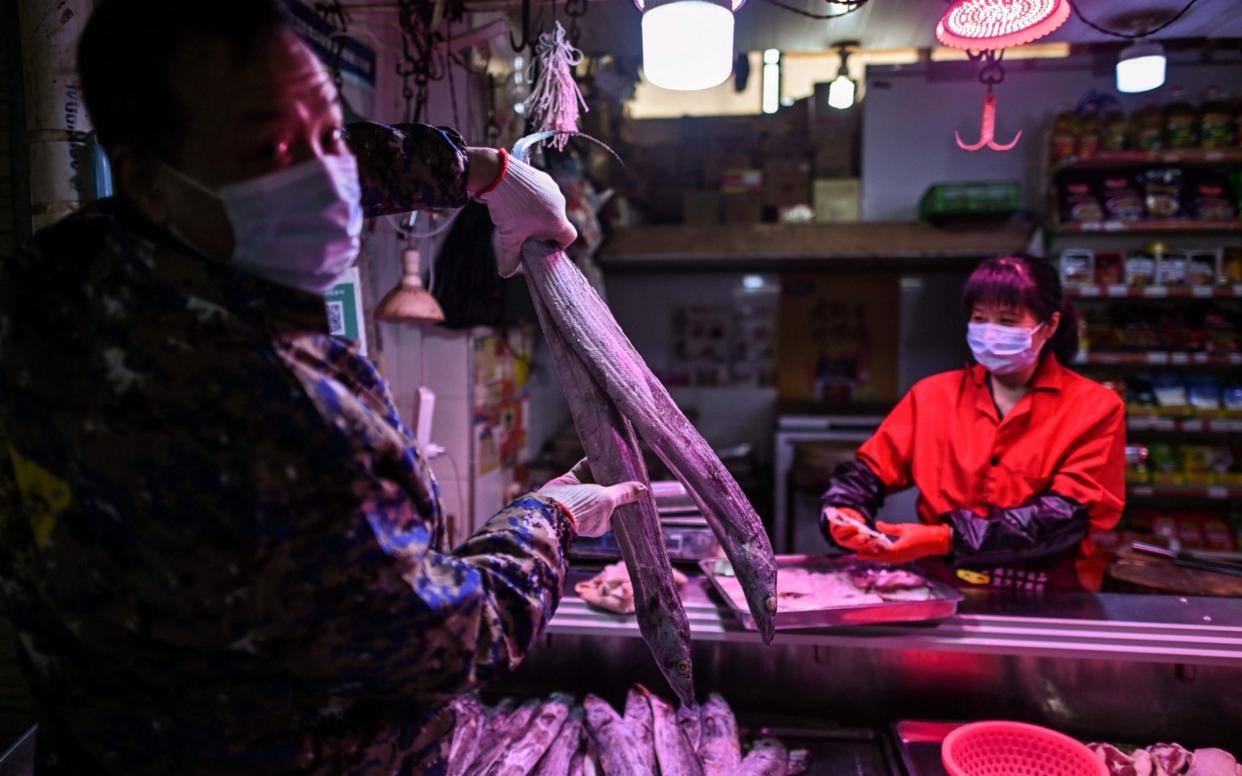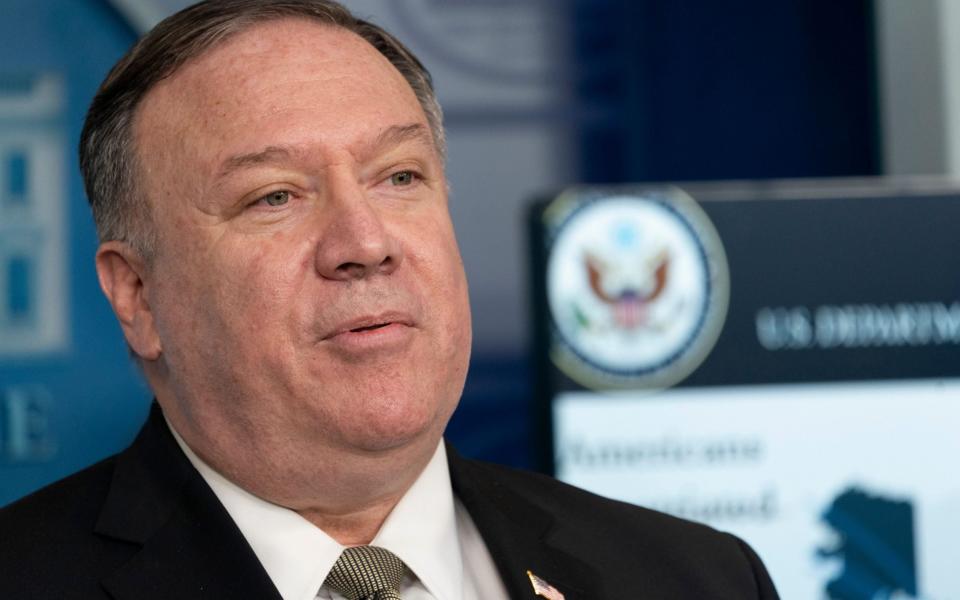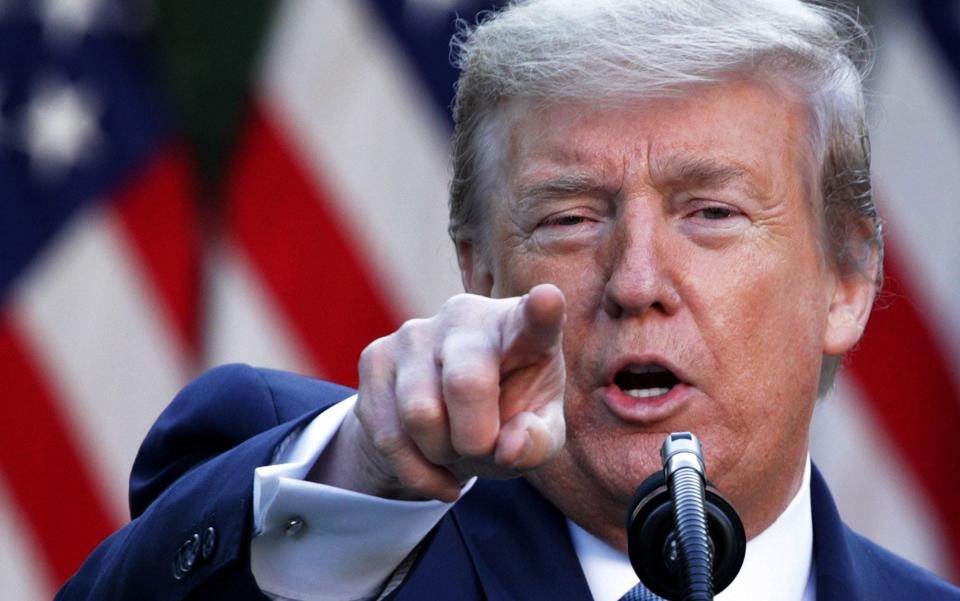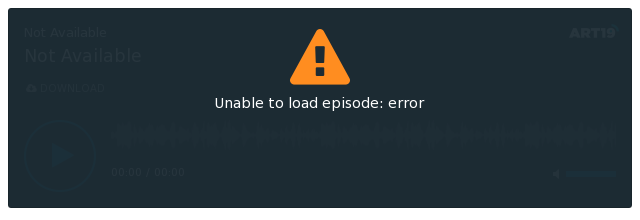China told to 'come clean' as US investigates whether coronavirus originated in Wuhan lab


The Trump administration has demanded that China "come clean" about the origins of Covid-19 amid reports the virus spread from a lab in Wuhan.
Mike Pompeo, the US secretary of state, said America wanted "the Chinese government to open up" and help explain "exactly how this virus spread" after pointing out that the outbreak originated close to where the Chinese state-backed Institute of Virology is located.
The comments came after Fox News reported that unnamed sources believe the virus was initially transmitted from a bat to a human in a virology lab in Wuhan. Given poor safety controls, an infected lab worker then visited a seafood market from where the virus spread.
"What we do know is we know that this virus originated in Wuhan, China," Mr Pompeo told Fox. "We know there is the Wuhan Institute of Virology just a handful of miles away from where the wet market was. There is still lots to learn. The United States government is working diligently to figure it out."

"The Chinese government needs to come clean and needs to be accountable," he added.
Other media reports have also suggested that lax protocols at the lab failed to contain the virus.
Donald Trump fanned further speculation of the lab theory when asked about it during a White House briefing on Wednesday, saying “more and more, we’re hearing the story”.
“We are doing a very thorough examination of this horrible situation that happened.”

Beijing is also coming under pressure from Britain and France over the pandemic.
Foreign Secretary Dominic Raab told reporters there could be no "business as usual" with China.
"We'll have to ask the hard questions about how it came about and how it couldn't have been stopped earlier," said Raab, filling in for Prime Minister Boris Johnson who is recovering from the virus.
French President Emmanuel Macron warned not to be "naive" in believing China has handled the outbreak well.
"There are clearly things that have happened that we don't know about," he said in an interview with the Financial Times.
US media outlets also reported that officials from the US embassy in China had visited the Wuhan lab in 2018 and reported concerns about safety protocols in diplomatic cables to Washington.
However earlier this week, General Mark Milley, chairman of the Joint Chiefs of Staff, questioned the lab theory, saying that US intelligence continued to indicate the coronavirus likely occurred naturally, rather being created in a lab, but that it was not clear either way.
The source of the virus remains unknown, though a number of theories have emerged. Chinese authorities, for instance, have accused the US military of importing the infection to China.
Experts have linked the virus to a seafood market in Wuhan, which has since been closed down and disinfected. Scientists have also highlighted that it’s possible the virus was brought into the market, where it then spread to a wider human population.

Analysis by scientists have largely pointed to wildlife as the source of the virus, somehow jumping from an animal to humans. Such findings have been published in the Lancet, a peer-reviewed journal.
A study published in highly-reputed scientific journal Nature has also poured cold water on lab theory claims, with researchers stating: "We do not believe that any type of laboratory-based scenario is plausible".
The coronavirus pandemic, which has infected more than two million people and killed nearly 140,000, has strained US-China relations to a new low coming on the back of difficult trade negotiations last year.
Mr Trump came under fire from Beijing earlier this year after calling coronavirus the “Chinese virus.” He has also accused Beijing of concealing the outbreak when it first emerged, a move that exacerbated how infections spread globally.
Mr Trump and other US officials have also expressed deep scepticism of China's officially declared death toll from the virus of around 3,000 people, when the United States has a death toll of more than 20,000 and rising.
He said on Wednesday that the United States has more cases "because we do more reporting".
“Do you really believe those numbers in this vast country called China, and that they have a certain number of cases and a certain number of deaths; does anybody really believe that?” he said.
That’s since extended to criticisms of the World Health Organisation, which he said this week was complicit in withholding key information.
Beijing has hit back as well, expelling US journalists in a tit-for-tat war that authorities say began as a way to lodge a complaint against a column in the Wall Street Journal with the headline, “China Is the Real Sick Man of Asia,” which criticised the country’s public health response.
Meanwhile the US State Department claimed China may be secretly conducting low-yield underground nuclear tests, in a new arms-control report which is likely to further inflame tensions between the two nations.

The report does not offer proof but cites activities that “raise concerns” at China’s Lop Nur test site, including extensive excavations and purported use of special chambers to contain explosions.
China and the US signed the Comprehensive Test Ban Treaty in 1996, and while neither country has ratified it both have committed to adhere to its nuclear testing restrictions.
“[China’s] lack of transparency on its nuclear testing activities ... raise concerns regarding its adherence to the zero yield standard,” the state department report, first reported by the Wall Street Journal, stated.
Zhao Lijian, the spokesman for China's foreign ministry, rebuked the accusation and insisted that China was committed to a moratorium on nuclear tests.
“The US criticism of China is entirely groundless, without foundation, and not worth refuting,” he said.

 Yahoo News
Yahoo News 